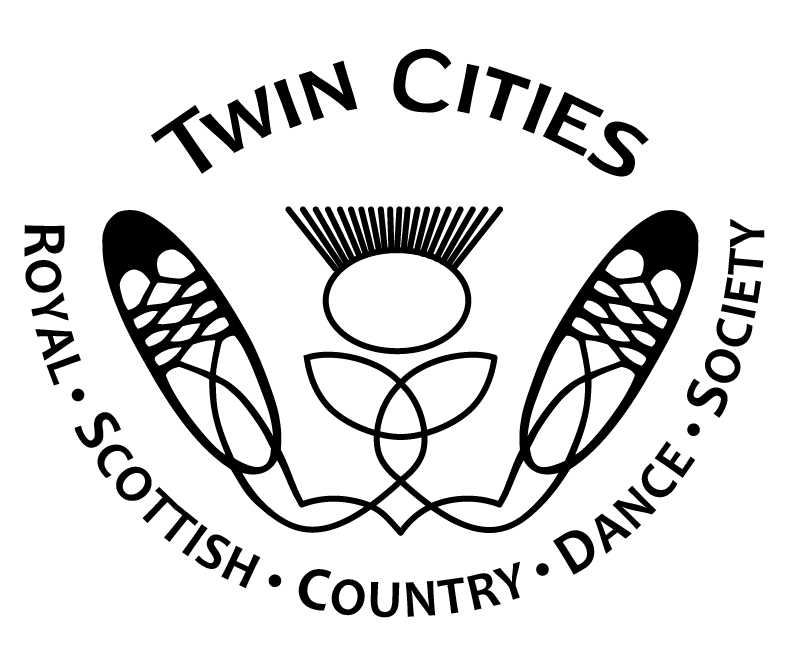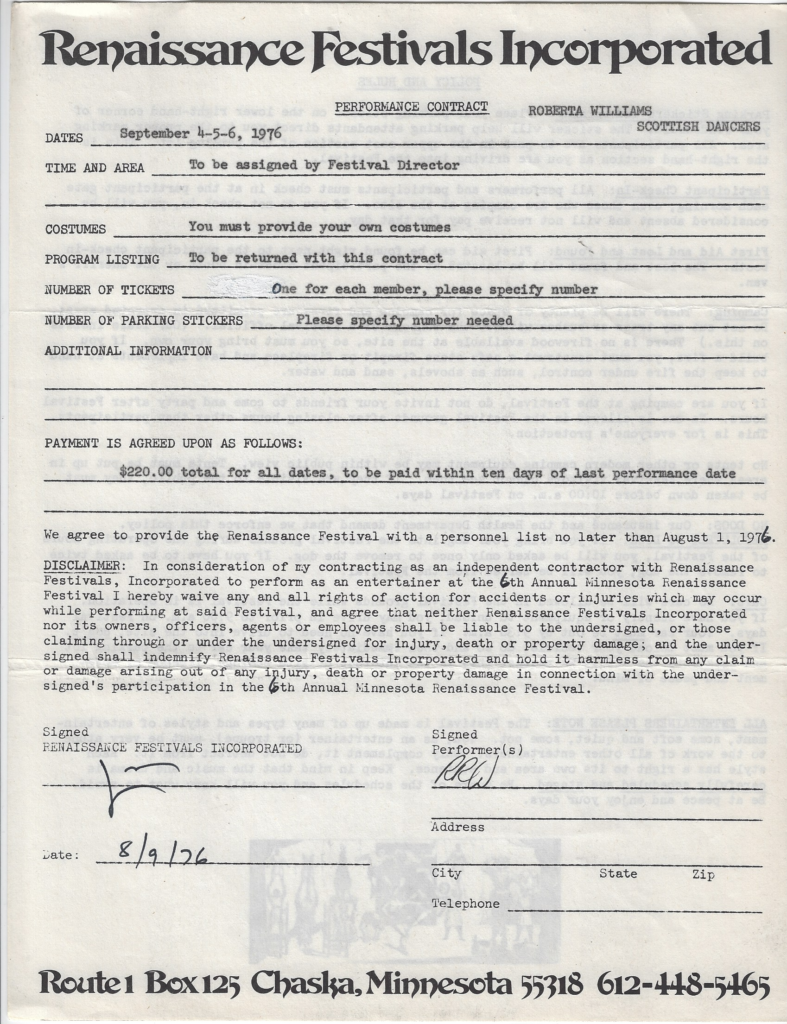Royal Scottish Cooking, belly Dancing, and Scones
The latest of posts documenting our response to and activities during the COVID-19 pandemic. See previous posts here.
Dec 7th: Janet’s Thankful Dances
Classes resumed after the wonderful Virtual Fàilte Ball, with a selection of dances with a thankful theme. Some were challenging, needing virtual partners, or Post-It Note corners.
Bethankit 32 J 3C
Middling, Thank You 40 J 3C
Rest and Be Thankful 32 J 3C
Many Thanks 32 S 3CS
Dec 14th: Scottish Belly Dancing (back by popular demand)
Katrina gave us a follow up class on the tradition of belly dance. Remember those neglected muscles that were talking to you after her last class? Time for another conversation with them!
Dec 21st: Ecclefechan Tart and Cranberry Nut Scones
Eric shared some of his baking skills with the group. He had donated an Ecclefechan tart for the silent auction at the Fàilte Ball; now he demonstrated how to bake it, for lucky winner Hannah. Next came cranberry nut scones. Then we heard tell of his hunt for a potato scone recipe – everyone he asked in Scotland bought frozen scones from the supermarket. The problem with virtual cooking classes is you don’t get to smell or taste the delicious food.
Cranberry Nut Scones
2 cups all purpose flour
1/4 cup brown sugar
2 tsp baking powder
1/2 tsp salt
2 tbsp unsalted butter
1/2 cup dried cranberries
1/4 cup chopped pecans
1 cup buttermilk
- Preheat oven to 425 oF
- Combine dry ingredients, then cut in butter (Dan & Eric got lost in a discussion about butter forks).
- Stir in cranberries and nuts, then buttermilk. Dough should be soft and sticky: do not over work.
- Drop by large spoon-full onto baking sheet.
- Bake for 14-18 minutes, or until golden brown.
Dec 28th: Hogmanay
We danced the old year out (who wasn’t be glad to say goodbye to 2020?) with Hogmanay themed dances. The dances were easy and we revisited Many Thanks from earlier in December.
Farewell to 2020 and a toast to better times in 2021!
2021 opened with the news of the COVID-19 vaccine rollout, targeted at first to the most vulnerable people. This is the ray of sunshine we have been waiting for all year! We should be able to resume dancing in a few months.
Jan 4th: Substitute Day
Monday was “2nd January (Substitute Day)” in Scotland. It’s a national holiday because no one really expects to be able to work effectively on January 2 (sometimes governments can make practical decisions!), but it gets moved because the real January 2nd is a Saturday. I hope the Scots have recovered by the 5th.
Jan 11th: Create and Devise Some Dances (part 1)
We used small group breakout rooms to discover what makes one dance more enjoyable than another. From our armchairs, we created two strathspeys, and two variations of these dances, one a strathspey and one a reel.
Jan 18th: Create and Devise Some Dances (part 2)
In last Monday’s armchair class we created a couple of dances. Now we had to get up out of the chair and try them out:
St Andrew’s Chase 32 S 3CS
| 1-8 | 1C down for 2, ½ turn for 2, up for 2 and cast to face 1st corner |
| 9-16 | reel of 4 on 1st diagonal LSh to 1st corner, pass long way to… |
| 17-24 | reel of 4 on 2nd diagonal, All finishing in middle on own side |
| 25-32 | allemande (3,1,2) |
January Frost 32 S 3CS
| 1-8 | 1C and 3C double figure of 8 around 2C |
| 9-12 | 1C and 2C RHA halfway; 1C and 3C LHA halfway |
| 13-16 | 3C and 1C set & link |
| 17-24 | Diagonal rights & lefts |
| 25-32 | All circle 6 hands round and back. Finish in the order 3, 1, 2, ready to begin with a new top couple |
Jan 25th: Burn’s Night
A good scotch was called for this night as we settled in for some conversation and entertainment.
Fer sang a Burns song to start the evening. Stuart read and unpacked Tam o’ Shanter for those (all?) who needed a translation. This was followed by the traditional toasts, while we learned about some of the finer details of scotch drinking.
Feb 1st: No-hands Dances from France
Janet taught three fun and somewhat challenging dances from France that were written last spring during the early months of the pandemic. The dances had no hand contact to maintain social distance.
There are links to YouTube videos, but not all of them have cribs in the Strathspey Database.
Groundhog Day, 32 R 3C
Who needs hands when they’ve got eyes, 32 S 3CS
Nairi and Noah, 32 R 3CS
Feb 8th: Practice for Slush Season Social
Janet led some familiar dances (General Stuart’s Reel, and Kendall’s Hornpipe) and some less familiar ones that we have done in class (Many Thanks and Groundhog Day). These dances will be on the Slush Season Social.
Feb 15th: Kiltmaking with Jim
Jim Morehouse, former branch Master of Wardrobe, aka Seamus the Tailor, demonstrated kilt making. It was fascinating to see how a kilt is put together. The main take-away for me was don’t try this at home, pay someone who knows what they are doing. Jim’s teddy bear in a kilt was very cute.
Feb 22nd: Slush(less) Season Social
We celebrated some warmer (less cold?) weather, with dances we had learned in recent weeks.
March 1st: 4th Couple Conversations/Speed Dating
Remember when you were fourth couple and had some of those quick but memorable conversations during the 32 bars you are standing out of the dance. We got to know our fellow branch members a bit better with some SCD-style speed dating!
March 8th: The Tournée!
If you’ve ever felt confounded by this formation, in this class Lara aimed to demystify it.
Props required: a broom or similar object
Fête Champêtre 32 J 2C
Dunfermline Glen 32 S 2C
Lady McGowan’s Dream 32 S 2C
Pumpking Baker 32 R 3C
March 15th: Tea Time with Sharon
Sharon Stephens led us on a stroll through the history of tea, and Japanese tea ceremony traditions. And, of course, how the British stole and ruined tea. We learned the official standard for making tea (yes there is a standard!).
Milk before tea or tea before milk? The correct answer is drink green tea.
March 23rd: Boozy Dances
BYOB for another virtual dance class featuring boozy dances.
Pint O’ Ale is Fain 32 J 3C
Red Wine & Truffles 32 J 3C (will be danced as a strathspey)
Johnnie Walker 64S + 64J
March 29th: Volts and Amps and Ohms
Dan Friedman-Shedlov taught us everything we needed to know about electricity, and how it was invented by the Scots. If you like, take another look at the novelty Scottish country dance Maxwell’s Waves .
Also, there was a Dance Scottish at Home newsletter that featured an article about Maxwell, electricity, and SCD.
April 5th: Practice for the Ball
This week and next we focused on dances from our upcoming Virtual Grand Ball program.
Reel of the 51st Division 32 R 3C
Zsófi’s Delight 32 J 3C
Come and Dance with Me 32 S 2C
April 12th: More Practice for the Ball
Fête Champêtre 32 J 3C
Trysting Place 32 S 2C
General Stuart’s Reel 32 R 3C
April 17th: 2021 Virtual Grand Ball, a Fête Champêtre
Live music by Liz Donaldson and David Knight, games, socializing, a silent auction, and more music for your listening pleasure.
Wear a hat! It’s a garden party — and Phyllis won the prize for the best hat.
The virtual doors opened at 6:30pm with the grand march and dancing at 7pm.

What a treat to have live music from Waverley Station! I thought live music over Zoom would be meh, but it was invigorating and so refreshing. The only problem was we couldn’t watch Lara & Dan at the same time, and many of us got lost, alone in our living rooms.
Lara brought us two games. The first was “name that dance”, where the clues included snippets of the instructions (either written or as diagrams), snippets of video, and music. The fewer clues you needed guess the answer, the more points you got.
The second game was “who’s who” where we had to guess what everyone wanted to be what when they grew up.

While it can’t compare to an in-person event, it was still a lot of fun. It was wonderful to see folks from across the continent and even across the ocean!
A huge thank you to everyone who made the event happen, especially Katie Brady for heading up the planning, Fer for being the tech coordinator, Tiffany and Joe for coordinating the auction, and to the folks that delivered the ball swag.


